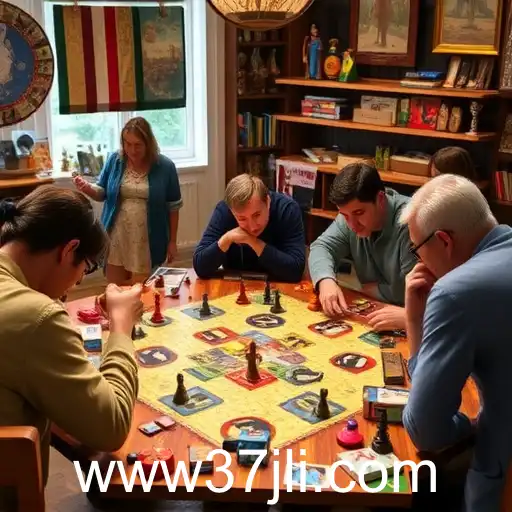Board games have long been a source of joy, bonding, and intellectual challenge for people across the globe. From the strategic depth of chess to the cooperative fun of Pandemic, board games offer a wide variety of experiences that can cater to almost any interest or skill level. The core essence of board games lies in their ability to bring people together, uniting them in shared experiences that foster both competition and camaraderie.
The history of board games dates back thousands of years, with ancient artifacts revealing that even early civilizations found joy in gaming. The Royal Game of Ur, for example, dates back to 2600 BC, showing the timeless human desire to engage in structured play. Over time, board games have evolved, yet the fundamental appeal remains unchanged. Classic games like Monopoly and Scrabble have become staples in households worldwide, while new games continue to emerge, showcasing innovative mechanics and themes.
Today, board games have experienced a resurgence, especially among families and groups of friends looking for tech-free ways to connect. Many attribute this renewed interest to the diversity of games now available, with options ranging from quick, easy-to-learn family games to intricate strategy games that can stretch over several hours. The hobby has expanded significantly, with dedicated gaming cafes and conventions springing up globally, providing spaces for enthusiasts to gather and share in their passion.
Moreover, the digital age has acted as a boon rather than a competitor to the world of board games. Online platforms and apps have made it possible for people to play games with both friends and strangers across the world. Digital versions of popular games allow for accessibility without losing the tactile and strategic elements that players love. Kickstarter and other crowdfunding platforms have also enabled independent designers to bring unique board games to the market, expanding the range and depth of game experiences available.
Notably, the pandemic period saw board games become a lifeline for social interaction, as families turned to them for entertainment during lockdowns. They offered a respite from screens, a chance to bond, and an opportunity for friendly competition when physical gatherings were limited.
As we look forward, the future of board games seems bright. Innovators continue to blend traditional gameplay with new technologies like augmented and virtual reality, promising even more engaging and immersive experiences. But at their heart, board games remain cherished for their simplicity: the joy of sitting around a table, rolling dice, and enjoying time with others. It is this everlasting appeal that ensures board games will continue to be a central part of social entertainment.

Board games have been a beloved form of entertainment for centuries. This article explores why board games continue to hold a special place in our hearts and how they have adapted in the digital age.




